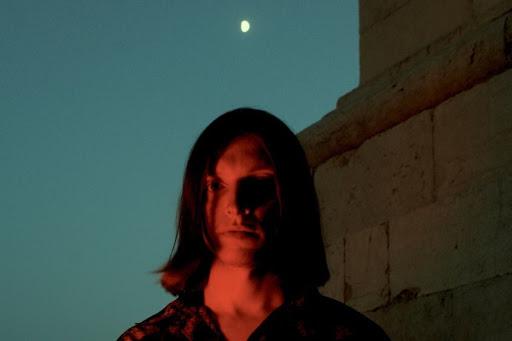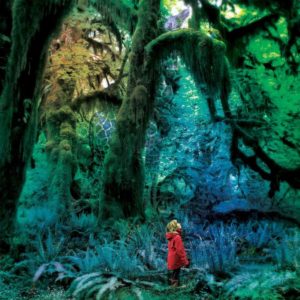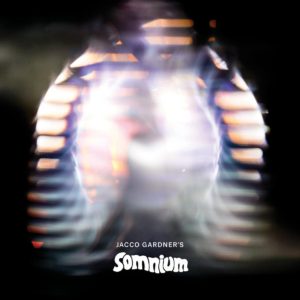
Escape, Mystery, Psychological Transformations: An Interview with Jacco Gardner
Jacco Gardner is a Dutch multi-instrumentalist who has been recording and releasing music since 2012. His albums include Cabinet of Curiosities (2013), Hypnophobia (2015), and Somnium (2018). His music has been described as “sonic puzzles” (Under the Radar), “eerie, retro-futurist sound worlds” (Q Magazine), and “an engulfing sonic swirl, recalling the enveloping work of Cluster and Tangerine Dream” (Uncut).
Your first released song, “Clear the Air”, appears influenced by Syd Barrett in its instrumental and vocal style. Many of the song titles on your debut album Cabinet of Curiosities contain a childhood fantasy, fairy tale, nursery rhyme quality as Syd’s songs on Piper at the Gates of Dawn did. What was it about 1960s baroque pop and pastoral psychedelia that was so inspiring to you when you recorded your debut?
I think it has something to do with the longing for innocence, often experienced as a child. I think in the ’60s but also in other times, many people felt that growing up was a kind of inevitable loss of innocence, and adjusting to a more cynical, tough world in which making money becomes an obsession for many, including the sometimes more dark and sinister aspects of this. Just part of life.
I think Syd felt out of touch with this and maybe closer to a more innocent world full of wonder he experienced at a younger age. In his case, I think his mental condition was also attributed to this, but like him, there were many others in the ’60s that loved to give more space to their child-like imagination in daily life.
I think in that sense not much has changed nowadays. People are still often selfish and power/money-hungry, causing others to suffer. I think this must be a reason why I’ve felt (and still feel) the urge for escapism. I actually feel the word “escapism” also doesn’t totally cover it, as we are and will always be prisoners of our own minds. Accepting that fact, why not make this mental prison look as wonderful as possible while we’re in it? I think that sums it up pretty well.
Although you recorded both Cabinet of Curiosities and Hypnophobia solo, the debut at times has a carnival, circus, gypsies traveling vibe, whereas Hypnophobia has a dark, introspective, isolated, mesmerizing mood of solitude, a perfect soundtrack for night driving.
The album artwork was designed by Julian House who has also designed album artwork for the Ghost Box label. Do you feel an affinity with Hauntology? What changed in your instrumentation and lyrics during the recording sessions for Hypnophobia and how did this change occur?
I guess I do feel an affinity with Hauntology, but I also think the concept of the past haunting the present and shaping the future is a more broad effect that has always happened in one way or another, for as long as human beings recorded themselves. Maybe the same happened with the first cave paintings?
I felt the urge to give more space to express something more mysterious and abstract. I guess it easily becomes a bit darker because of that, as well.
Cabinet of Curiosities was more playful, and maybe less introspective. And also through the experience of touring, I’ve felt the need to experiment and improvise more, which was not always easy to do when playing these super structured pop songs. Maybe it was also a way to avoid the repetitive aspect of playing the same songs every day and make things a bit more fun.
You moved away from your home studio in the Netherlands to Lisbon to record your third (and most recent) album Somnium. This was a departure as it is ambient, electronic, entrancing instrumental space soundscapes- no lyrics or vocals. How did the environment of Lisbon lead to this transformation?
Lisbon was an escape from myself in a way. Somnium is this, as well. I felt more like a stranger there, like an outsider, and I enjoyed this feeling. I could wander around and explore, and feel free from being a pop  personality, from which people expect me to talk about myself a lot. The city is quite impressive and ancient, maybe this led me to want to create something more romantic and epic, as well.
personality, from which people expect me to talk about myself a lot. The city is quite impressive and ancient, maybe this led me to want to create something more romantic and epic, as well.
I was a bit done with the increasing self-obsession of artists on social media, and the expectation to fit this profile. That drove me to experiment more with the effect of instrumental music, which was something already present on my first album, and the number of instrumentals only increased with every release. In that sense, I don’t feel it is that much of a departure.
I found that Somnium kept something more open, and universal. Compared to a more pop approach, I felt there was more space for the imagination to go into different directions with every listen, and it’s the only album that still now has this effect on me when I listen to it.
Both Cabinet of Curiosities and Somnium (an astronomical dream voyage by Johannes Kepler) are references to the sixteenth century. Is there an aesthetic or philosophy within that era that fascinates you?
I think what fascinates me about the 16th century is the way certain scientific and technological advances led to many new discoveries both in space as on earth. What’s different about the way this happens today is that, for many people, today’s discoveries do not fill them with a strong sense of mystery and wonder. In the 16th century, the discovery of new planets, animal and plant species, immediately triggered the imagination. Many of these animals found their way into fairy tales where they changed into grotesque monsters or divine animals.
It’s inspiring to me to see brilliant scientists like Kepler allow such an extent of imagination and wonder into their work and probably daily lives. They likely experienced daily life in a pretty mysterious way. A life full of secrets, not knowing what would be discovered next.
I like to live like this as much as possible, even today. Because, the assumption that mystery in life is just imagination and doesn’t actually exist, and is contrasted by the absolute idea of reality, is in my opinion, a very black and white, arrogant, and boring way of living life.
Vinyl Writers is a community dedicated to discussing records that change our lives. What records have been most important in your life?
I don’t like to compare the influence records had on me too much, because often I’m not even aware of how much effect an album really had on me. But just to mention a couple of albums that were definitely important, especially in my past: Bo Hansson’s Music Inspired By Lord Of The Rings, Pink Floyd’s Piper At The Gates Of Dawn, Mort Garson’s Plantasia, Sagittarius’ Present Tense, The Zombies’ Odessey And Oracle.
How has the coronavirus epidemic and quarantine affected your creativity and life?
Not much. I was pretty much already in quarantine before it was needed. I’m a pretty hermetic person and like to work at home in my studio. I did have to cancel some shows, but many of my friends suffered much more from this. They had to cancel entire tours. Of course, this is a weird time, and sometimes it affects me more than other moments, but I’m sure this must be the same for almost everyone.
What directions do you envision your music moving in next?
I would like to keep experimenting with the psychological journey of transformation one undertakes when listening to music, and keep making music for this purpose. And I will keep trying to find the exact spot in between a composition oriented approach and a live improvisation approach, which greatly depends on the creative tools I’m using and the workflow they bring. Instrumental electronic music does seem easier to experiment with right now, but who knows what will happen after that!
Thank You so much for answering these questions, Jacco.
My pleasure!
Interview by Mark Lager – April 2020
Buy Jacco Gardner’s albums and listen to his music here:
https://www.jaccogardner.com
https://jaccogardner.bandcamp.com
https://www.polyvinylrecords.com/artist/jacco_gardner

The dream voyage to the moon by Johannes Kepler- I just noticed an interesting correlation to your last interview with Jesse Sykes, called “Amazon Moon…”
https://vinylwriters.com/amazon-moon-an-interview-with-jesse-sykes/
The wonderful Jesse Sykes ends the interview with these words. “I still can’t wrap my head around the fact that Amazon is heading to the moon – this truly breaks my heart. Donald Trump in the White House and Amazon on the moon. These are epic times.”
That was last Summer.
April 6, 2020: Americans are commercializing and privatizing the moon by a decree signed by Trump , claiming ownership over it and making way for moon mining by the big corporations. #underthecoronasurface
https://www.whitehouse.gov/presidential-actions/executive-order-encouraging-international-support-recovery-use-space-resources/
Great, warm analogue sound – I hear the Korg MS20.
Nice interview, Mark !. I loved the part when Jacco said: “why not make this mental prison look as wonderful as possible while we´re in it ?”.
“Cabinet of Curiosities” definitely sounds like Pink Floyd´s “The Piper at The Gates of Dawn”. That record always intrigued me- Syd Barrett was at the peak of his powers, and it´s still hard to categorize this album into an specific genre. I think the same thing happens with Jacco´s music, there are blissful and eerie patterns that stick with you. I was only familiar with his first album. Thank you for this, I´ll give an opportunity to his most recent material !.
What’s great about Jacco Gardner is that there’s different dimensions to explore in each of his three records (baroque pop and pastoral psychedelia in Cabinet of Curiosities, film and library music in Hypnophobia, and ambient electronic space music in Somnium.) Thanks Octavio.
Wonderful interview, Mark. Some great insight into an artist I was so familiar with. Somnium sounds great. An album that I can really explore. Sonic puzzles, indeed.
Definitely recommend Somnium. Shares similar soundscapes with the German ambient/electronic/space music of the 1970s. Thanks Shawn.
I’m a reader since day one (or two…) and love your page. To an extent that I know the writer’s names. There’s always something new and good , a new column, new thoughts, new discoveries or such great interviews lately. I never heard of Jacco Gardner, but the interview and sound clips are great. I’m streaming my third album of this fairly young genius now! Thank you and keep up the great work!!
What’s great about Jacco Gardner is that there’s different dimensions to explore in each of the three records he has released (baroque pop and pastoral psychedelia in Cabinet of Curiosities, film and library music in Hypnophobia, and ambient electronic space music in Somnium.) Thanks Simon.
Thanks for publishing this, I had never heard of him before. The music sounds old-fashioned and futuristic at the same time, I’ll definitely explore this more.
Glad to hear you’re intrigued. Thanks for reading, Renee.
Amazing multi-instrumentalist. To handle such an album more or less single-handedly is very great art.
His mastery of so many instruments is, indeed, dazzling.
Great interview- Jacco’s music doesn’t only sound like 60s psychedelic , but also has a 70s European melancholia and grandezza vibes to it… I like what I have heard so far! Thanks for this, Mark.